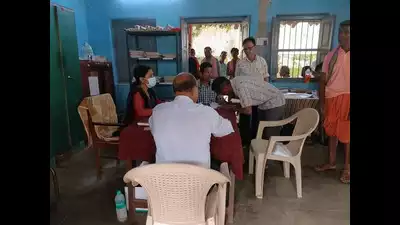
Chandigarh: The Punjab rural development and panchayats department has ordered the transfer of rural medical officers (RMOs) who have been stationed at the same subsidiary health centre for over five years, a move that has triggered strong opposition from the medical community.
Govt Defends Move, Says Transfers Aim to Improve Healthcare
Officials claim that relocating doctors within districts will enhance efficiency and ensure better service delivery. The department has directed additional deputy commissioners (ADCs), who serve as chief executive officers of zila parishads, to implement the transfers and compile a list of centres without doctors but staffed with pharmacists and Class IV employees. These centres, along with staff and infrastructure, are expected to be transferred to the health department. ADCs must submit an action-taken report by February 18.
Doctors Call Transfers Arbitrary, Cite Service Rule Violations
However, rural doctors have fiercely opposed the decision, arguing that it violates service rules. As per the existing policy, district-level transfers are only permitted upon request, and inter-district transfers are voluntary, with doctors having to forgo their seniority. Since no requests were made, RMOs argue that the directive is unjustified and arbitrary.
Dr Jagjit Bajwa, president of the Association of Rural Medical Officers, condemned the move, calling it an act of harassment against doctors who continue to serve despite being denied benefits like assured career progression (ACP) and fair pay scales.
“The rural medical officers cadre is already dying, with no benefits under DACP/MACP, no promotions, and no seniority. Instead of supporting us, the government is demoralizing dedicated doctors working in remote rural areas. If this decision is not revoked, we may be forced to launch an agitation,” warned Dr Bajwa.
Long-Standing Dispute Over Rural Dispensaries
The government’s attempt to transfer rural dispensaries to the health department has remained a contentious issue for years. In 2021, 132 rural dispensaries, along with medical officers, were shifted to the health department, but many suffered from irregular medicine supplies and poor management.
Dr Bajwa urged the government to focus on addressing RMOs’ grievances and providing pending benefits, instead of issuing directives that could lead to further confrontation.

